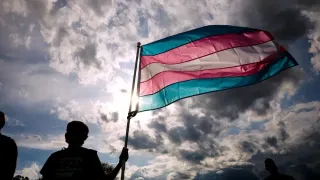
6 hours ago
Pentagon Disbands 75-Year-Old Women’s Military Advisory Group Over "Divisive Feminist Agenda"
READ TIME: 3 MIN.
On September 23, 2025, the Pentagon announced the formal termination of the Defense Advisory Committee on Women in the Services (DACOWITS), a body first established in 1951 to advise the Department of Defense on policies and conditions affecting women in the U.S. Armed Forces. The decision, signed by Defense Secretary Pete Hegseth, followed a brief period in which the committee’s reinstatement had been considered, only to be reversed days later .
Pentagon Press Secretary Kingsley Wilson stated that DACOWITS was being eliminated because it “focused on advancing a divisive feminist agenda that hurts combat readiness,” emphasizing that the Secretary’s priority is “advancing uniform, sex-neutral standards across the Department” .
DACOWITS provided recommendations ranging from recruitment and retention to the development of proper body armor for women, health care, and parental leave policies. Its most recent public meeting, held in December 2024, addressed key topics such as recruitment statistics, integration of women on submarines, eating disorders and physical fitness, menopause, and reintegration to service post-childbirth .
Committee members typically gathered data through briefings, written responses, expert consultations, and direct engagement with service members, aiming to ensure policies reflected the realities and needs of women in uniform—who currently comprise about 17.7% of the military .
Many former committee members, military leaders, and lawmakers have voiced strong concern. Retired Marine Captain Angie Morgan, interviewed by CNN, described the committee as “an independent, fact-based research organization,” warning that its dissolution “is going to have a long-term negative impact on women for generations to come” .
Rep. Chrissy Houlahan (D-PA), a former Air Force officer, has advocated for DACOWITS and similar groups, submitting questions to the Pentagon about the rationale for the abrupt termination. She emphasized the importance of committees that help develop policies and equipment accounting for the specific needs and realities of women and other underrepresented groups in service .
The Pentagon’s move raises concerns not only for women but also for LGBTQ+ service members and advocates for inclusive military policy. Many LGBTQ+ organizations note that committees like DACOWITS have historically supported intersectional approaches, working to ensure that policies address the needs of transgender people, nonbinary individuals, and those facing overlapping forms of discrimination.
The committee’s work on issues such as parental leave, health care, and integration standards have benefited LGBTQ+ families and service members, including those who require gender-affirming care or seek fair parental protections. The loss of DACOWITS could mean less institutional attention to the unique needs of queer women, transgender people, and nonbinary individuals serving in the military .
Equality advocates also highlight that the framing of the committee’s work as “divisive” risks stigmatizing necessary conversations about equity, health, and safety. Many worry that a top-down approach focused solely on “sex-neutral standards” may ignore the lived realities of service members who face gender-based and sexuality-based discrimination.
The decision comes amid broader debates about diversity, equity, and inclusion (DEI) initiatives within the armed forces. Secretary Hegseth has previously advocated for the reduction of DEI programs, arguing that they undermine military cohesion and effectiveness. Critics counter that the military’s own data and experience show that targeted support for underrepresented groups improves retention and readiness, not the reverse .
The Pentagon’s demographics report for 2023 recommended full integration of recruit training and mixed-gender drill instructor teams, steps seen as key to fostering equal opportunity and combating bias. The elimination of DACOWITS is viewed by many as a setback to these ongoing efforts .
With the committee’s records scheduled for archiving and its personnel reassigned, advocates are calling for alternative mechanisms to ensure the needs of women and LGBTQ+ service members are represented. Some are urging Congress to pass legislation mandating inclusive advisory structures, while others propose the formation of independent watchdog groups to monitor the impact of policy changes.
For now, the Pentagon has not announced plans to replace DACOWITS with a similar body, leaving a gap in official channels for input on issues of gender and sexual orientation in military policy. Equality organizations continue to stress the importance of diverse voices in shaping policies that affect all service members, regardless of gender identity or sexual orientation.
Many LGBTQ+ organizations, such as the Human Rights Campaign and the National Center for Transgender Equality, have issued statements expressing concern about the implications for intersectional advocacy. They call for renewed efforts to ensure that military policies are responsive and inclusive, not only for women but also for transgender people, nonbinary individuals, and LGBTQ+ families.
The disbandment of DACOWITS marks a critical moment in the ongoing struggle for equity and representation within the armed forces. As the debate continues, advocates stress that the health, safety, and dignity of all service members—including those from LGBTQ+ communities—must remain at the center of military policy and practice.






